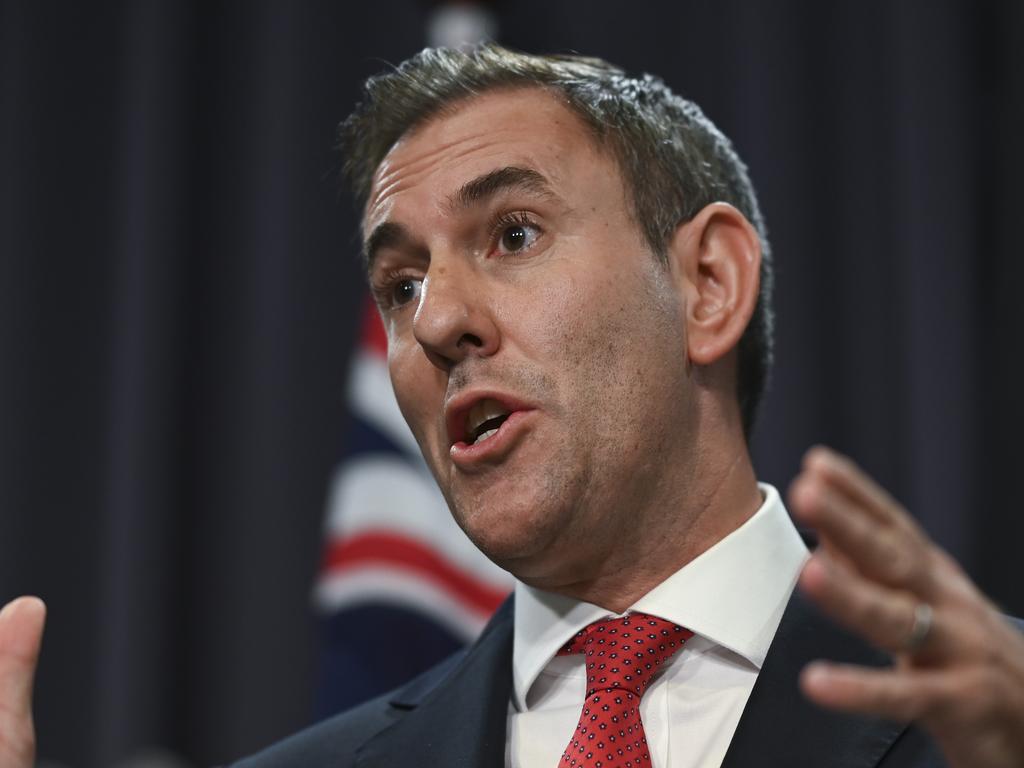Competition watchdog to stop corporate barbarians at the gate
Labor is on a winner with voters and small business by exposing anti-competitive deals by the big players to more scrutiny.

Jim Chalmers is bringing merger policy into the modern era and into line with the rest of the world.
Labor’s proposed competition policy changes will be popular, rather than populist, and over time should improve “the elasticity of the economy”, as one Treasury official defined the nation’s ability to deal with shocks, innovate and improve living standards.
No doubt big business will huff, but the proposed changes could have gone much further if competition chief Gina Cass-Gottlieb had got everything she had asked for, especially a change in the onus of proof falling on the proponents of a new deal.
In the great tribal conflicts, this is also a big win for evidence-armed economists and a loss of power for lawyers – those fee-gouging equity partners gaming the system and the learned judges of the federal court.
Until now, we’ve had an ad hoc approach to acquisitions, where a hungry Australian Competition & Consumer Commission prowled the edges of corporate deal making and intervened. It was hit and miss.
Or companies would notify the competition regulator, seeking its blessing for expansions.
There was also another, bruising way through the federal court, where non-expert judges would have to look into the future and work out whether the deal on the table would lead to a “substantial lessening of competition” in a market at some point down the track.
This poor state of affairs meant the expert ACCC, with its commercial nous, data and modelling, would be notified of only about 330 of the 1000 to 1500 mergers each year.
As well, the regulatory apparatuses could not detect serial acquisitions and so-called “midnight mergers”, which often led to increased market power by stealth or the killing off of future rivals by legacy players.
If the reforms are enacted, the Treasurer argues fewer bad deals will get through and more good ones won’t be denied.
We’ll all be better for an open merger screening process, conducted by experts in a speedy manner, with avenues for appeal.
The black box around deals will now be cracked open. Even a tiny bit of visibility will lead to better outcomes. Over time, we’ll get a fat body of evidence on deals and markets, one that was not possible three decades ago when the current merger test was enacted.
The administrative data and computing tools we have today allow officials a whole-of-economy approach to study the impact of mergers on wages, productivity and market share.
The latest research shows in recent decades the intensity of competition has weakened, with evidence of increased market concentration and mark-ups in several industries.
Amid cost-of-living strains, the Albanese government is on a winner here. There’s more policy coming down the pipeline on non-compete clauses and domestic aviation, while Canberra’s revival of National Competition Policy with the states is a positive sign.
The Treasurer, too, can make his mark as a genuine reformer in the competition sphere, in a relatively low-risk setting.
Right now, big business has few friends, given the post-pandemic bill shock, the poor form that has tarnished iconic brands such as Optus and Qantas, and the lingering bad vibes from the sharp practices detailed in the banking royal commission.
The competition watchdog will have to lift its game, too, with rapid responses to notifications in a fee-for-service environment.
Plus, the ACCC is now at the very centre of a merger agenda where expectations are growing.
As Cass-Gottlieb has argued, enhanced competition should deliver lower prices, higher quality, more innovation, more choice and higher productivity across the economy.
You can rarely say this about governments of the past two decades, with their flips, flops, swerves and surprises, but the process has been exemplary.
Chalmers has ticked most of the boxes in delivering these timely proposals: clear directions from the start, busy officials, open consultations, good evidence, modern theory and clear communications.
It’s the pundit’s kiss of death.







To join the conversation, please log in. Don't have an account? Register
Join the conversation, you are commenting as Logout